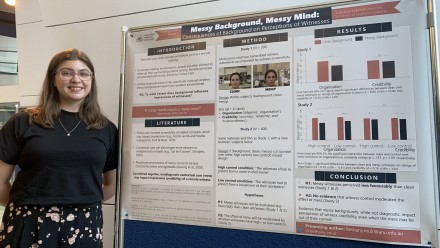When 'Tis Folly to Be Wise: The Psychosocial Functions of "Positive Unknowns"
When 'Tis Folly to Be Wise: The Psychosocial Functions of "Positive Unknowns"
by Professor Michael Smithson
Psychology is curiously blind to the idea that people might regard uncertainties as positive, or that they might prefer to not know certain things. To date, there has been little systematic investigation into "positive unknowns" in psychology. In this seminar, I will present a framework for understanding the psychosocial functions that unknowns perform, plus the results of studies that provide evidence for the following claims:
- People readily and consistently recall positive unknowns (but not all kinds).
- People generally agree that these unknowns are beneficial for them. Their patterns of endorsement exhibit a replicable and clear factor structure.
- Endorsement of positive unknowns is not generally due to tolerance of uncertainty. Established measures of intolerance of uncertainty and related constructs predict attitudes toward only a limited subset of positive unknowns, and sometimes they predict in opposite directions.
- The functions performed by positive unknowns include underpinning specific kinds of social capital.
- Measures of anxiety, depression, and the 5-factor personality structure predict attitudes toward positive unknowns, in ways that underscore the claim that there are several kinds.
The seminar concludes with a discussion of implications for theories of judgement and decision making, and clinical applications.
Tuesday October 15, 4:00 – 5:00pm
Peter Baume Building 42A, Room 2.01
Followed by drinks and nibbles in the Research School of Psychology tea room, Building 39.
Join our Mailing List











